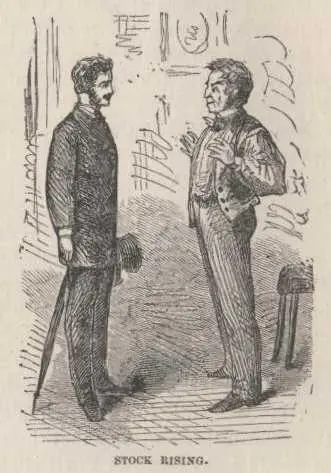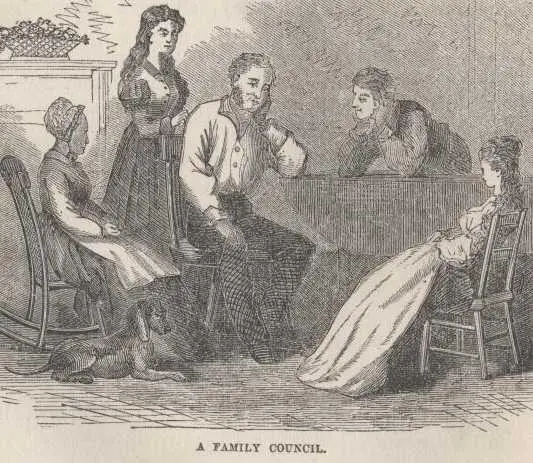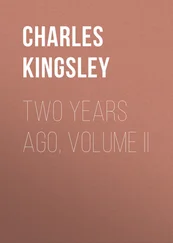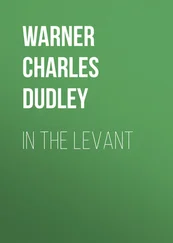Charles Warner - The Gilded Age / A tale of today
Здесь есть возможность читать онлайн «Charles Warner - The Gilded Age / A tale of today» весь текст электронной книги совершенно бесплатно (целиком полную версию без сокращений). В некоторых случаях можно слушать аудио, скачать через торрент в формате fb2 и присутствует краткое содержание. Год выпуска: 2004, Жанр: Классическая проза, на английском языке. Описание произведения, (предисловие) а так же отзывы посетителей доступны на портале библиотеки ЛибКат.
- Название:The Gilded Age / A tale of today
- Автор:
- Жанр:
- Год:2004
- ISBN:нет данных
- Рейтинг книги:3 / 5. Голосов: 1
-
Избранное:Добавить в избранное
- Отзывы:
-
Ваша оценка:
- 60
- 1
- 2
- 3
- 4
- 5
The Gilded Age / A tale of today: краткое содержание, описание и аннотация
Предлагаем к чтению аннотацию, описание, краткое содержание или предисловие (зависит от того, что написал сам автор книги «The Gilded Age / A tale of today»). Если вы не нашли необходимую информацию о книге — напишите в комментариях, мы постараемся отыскать её.
The Gilded Age / A tale of today — читать онлайн бесплатно полную книгу (весь текст) целиком
Ниже представлен текст книги, разбитый по страницам. Система сохранения места последней прочитанной страницы, позволяет с удобством читать онлайн бесплатно книгу «The Gilded Age / A tale of today», без необходимости каждый раз заново искать на чём Вы остановились. Поставьте закладку, и сможете в любой момент перейти на страницу, на которой закончили чтение.
Интервал:
Закладка:
"Too late—too late! He's gone! Fool that I am! always a fool! Thirty thousand—ass that I am! Oh, why didn't I say fifty thousand!"

He plunged his hands into his hair and leaned his elbows on his knees, and fell to rocking himself back and forth in anguish. Mrs. Hawkins sprang in, beaming:
"Well, Si?"
"Oh, con-found the con-founded—con-found it, Nancy. I've gone and done it, now!"
"Done what Si for mercy's sake!"
"Done everything! Ruined everything!"
"Tell me, tell me, tell me! Don't keep a body in such suspense. Didn't he buy, after all? Didn't he make an offer?"
"Offer? He offered $10,000 for our land, and——"
"Thank the good providence from the very bottom of my heart of hearts! What sort of ruin do you call that, Si!"
"Nancy, do you suppose I listened to such a preposterous proposition? No! Thank fortune I'm not a simpleton! I saw through the pretty scheme in a second. It's a vast iron speculation!—millions upon millions in it! But fool as I am I told him he could have half the iron property for thirty thousand—and if I only had him back here he couldn't touch it for a cent less than a quarter of a million!"
Mrs. Hawkins looked up white and despairing:
"You threw away this chance, you let this man go, and we in this awful trouble? You don't mean it, you can't mean it!"
"Throw it away? Catch me at it! Why woman, do you suppose that man don't know what he is about? Bless you, he'll be back fast enough to-morrow."
"Never, never, never. He never will comeback. I don't know what is to become of us. I don't know what in the world is to become of us."
A shade of uneasiness came into Hawkins's face. He said:
"Why, Nancy, you—you can't believe what you are saying."
"Believe it, indeed? I know it, Si. And I know that we haven't a cent in the world, and we've sent ten thousand dollars a-begging."
"Nancy, you frighten me. Now could that man—is it possible that I—hanged if I don't believe I have missed a chance! Don't grieve, Nancy, don't grieve. I'll go right after him. I'll take—I'll take—what a fool I am!—I'll take anything he'll give!"
The next instant he left the house on a run. But the man was no longer in the town. Nobody knew where he belonged or whither he had gone. Hawkins came slowly back, watching wistfully but hopelessly for the stranger, and lowering his price steadily with his sinking heart. And when his foot finally pressed his own threshold, the value he held the entire Tennessee property at was five hundred dollars—two hundred down and the rest in three equal annual payments, without interest.
There was a sad gathering at the Hawkins fireside the next night. All the children were present but Clay. Mr. Hawkins said:
"Washington, we seem to be hopelessly fallen, hopelessly involved. I am ready to give up. I do not know where to turn—I never have been down so low before, I never have seen things so dismal. There are many mouths to feed; Clay is at work; we must lose you, also, for a little while, my boy. But it will not be long—the Tennessee land——"
He stopped, and was conscious of a blush. There was silence for a moment, and then Washington—now a lank, dreamy-eyed stripling between twenty-two and twenty-three years of age—said:
"If Col. Sellers would come for me, I would go and stay with him a while, till the Tennessee land is sold. He has often wanted me to come, ever since he moved to Hawkeye."
"I'm afraid he can't well come for you, Washington. From what I can hear—not from him of course, but from others—he is not far from as bad off as we are—and his family is as large, too. He might find something for you to do, maybe, but you'd better try to get to him yourself, Washington—it's only thirty miles."
"But how can I, father? There's no stage or anything."
"And if there were, stages require money. A stage goes from Swansea, five miles from here. But it would be cheaper to walk."
"Father, they must know you there, and no doubt they would credit you in a moment, for a little stage ride like that. Couldn't you write and ask them?"
"Couldn't you, Washington—seeing it's you that wants the ride? And what do you think you'll do, Washington, when you get to Hawkeye? Finish your invention for making window-glass opaque?"
"No, sir, I have given that up. I almost knew I could do it, but it was so tedious and troublesome I quit it."
"I was afraid of it, my boy. Then I suppose you'll finish your plan of coloring hen's eggs by feeding a peculiar diet to the hen?"
"No, sir. I believe I have found out the stuff that will do it, but it kills the hen; so I have dropped that for the present, though I can take it up again some day when I learn how to manage the mixture better."
"Well, what have you got on hand—anything?"
"Yes, sir, three or four things. I think they are all good and can all be done, but they are tiresome, and besides they require money. But as soon as the land is sold——"
"Emily, were you about to say something?" said Hawkins.
"Yes, sir. If you are willing, I will go to St. Louis. That will make another mouth less to feed. Mrs. Buckner has always wanted me to come."
"But the money, child?"
"Why I think she would send it, if you would write her—and I know she would wait for her pay till——"
"Come, Laura, let's hear from you, my girl."

Emily and Laura were about the same age—between seventeen and eighteen. Emily was fair and pretty, girlish and diffident—blue eyes and light hair. Laura had a proud bearing, and a somewhat mature look; she had fine, clean-cut features, her complexion was pure white and contrasted vividly with her black hair and eyes; she was not what one calls pretty—she was beautiful. She said:
"I will go to St. Louis, too, sir. I will find a way to get there. I will make a way. And I will find a way to help myself along, and do what I can to help the rest, too."
She spoke it like a princess. Mrs. Hawkins smiled proudly and kissed her, saying in a tone of fond reproof:
"So one of my girls is going to turn out and work for her living! It's like your pluck and spirit, child, but we will hope that we haven't got quite down to that, yet."
The girl's eyes beamed affection under her mother's caress. Then she straightened up, folded her white hands in her lap and became a splendid ice-berg. Clay's dog put up his brown nose for a little attention, and got it. He retired under the table with an apologetic yelp, which did not affect the iceberg.
Judge Hawkins had written and asked Clay to return home and consult with him upon family affairs. He arrived the evening after this conversation, and the whole household gave him a rapturous welcome. He brought sadly needed help with him, consisting of the savings of a year and a half of work—nearly two hundred dollars in money.
It was a ray of sunshine which (to this easy household) was the earnest of a clearing sky.
Bright and early in the morning the family were astir, and all were busy preparing Washington for his journey—at least all but Washington himself, who sat apart, steeped in a reverie. When the time for his departure came, it was easy to see how fondly all loved him and how hard it was to let him go, notwithstanding they had often seen him go before, in his St. Louis schooling days. In the most matter-of-course way they had borne the burden of getting him ready for his trip, never seeming to think of his helping in the matter; in the same matter-of-course way Clay had hired a horse and cart; and now that the good-byes were ended he bundled Washington's baggage in and drove away with the exile.
Читать дальшеИнтервал:
Закладка:
Похожие книги на «The Gilded Age / A tale of today»
Представляем Вашему вниманию похожие книги на «The Gilded Age / A tale of today» списком для выбора. Мы отобрали схожую по названию и смыслу литературу в надежде предоставить читателям больше вариантов отыскать новые, интересные, ещё непрочитанные произведения.
Обсуждение, отзывы о книге «The Gilded Age / A tale of today» и просто собственные мнения читателей. Оставьте ваши комментарии, напишите, что Вы думаете о произведении, его смысле или главных героях. Укажите что конкретно понравилось, а что нет, и почему Вы так считаете.












